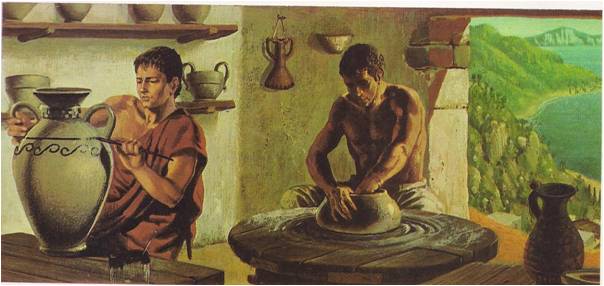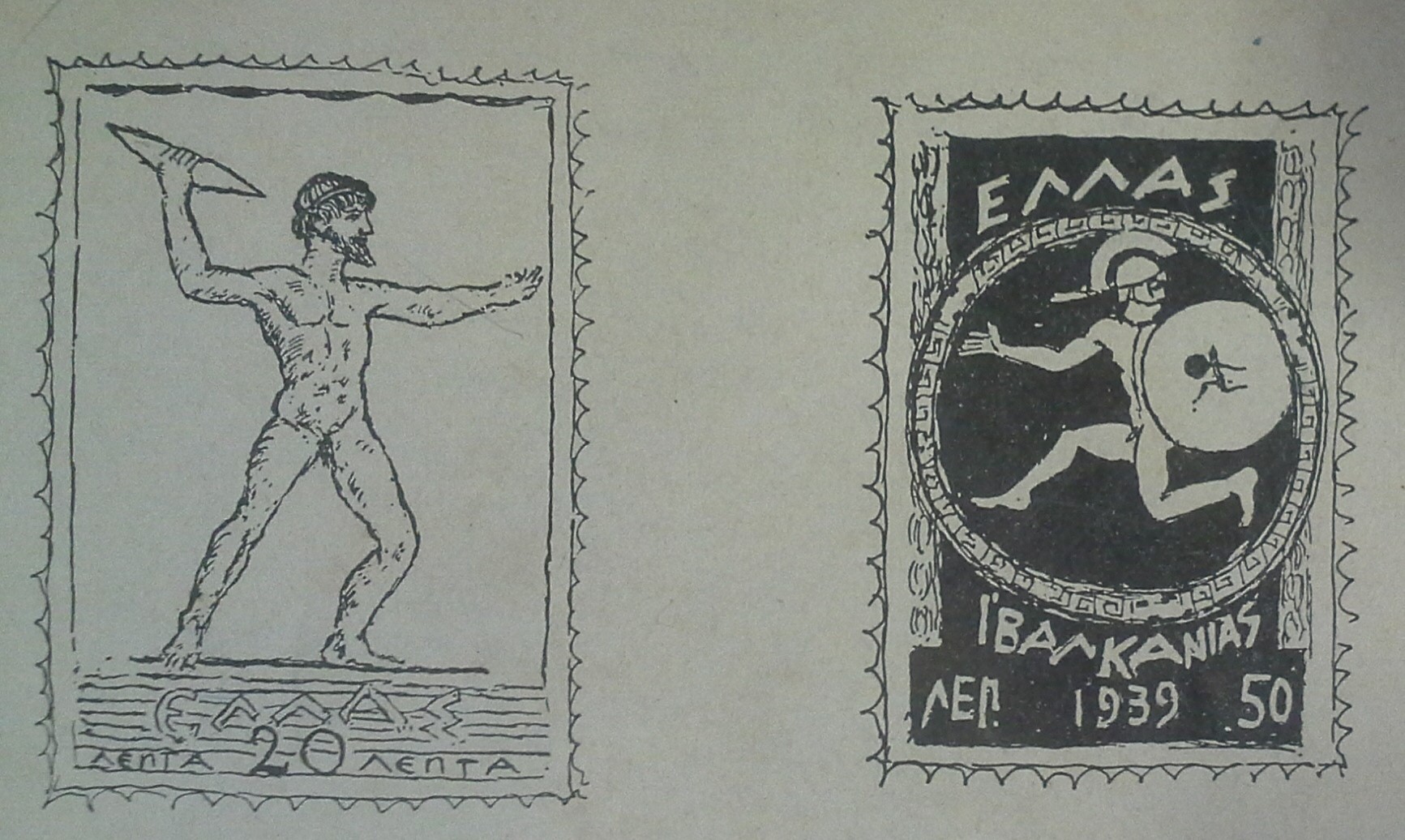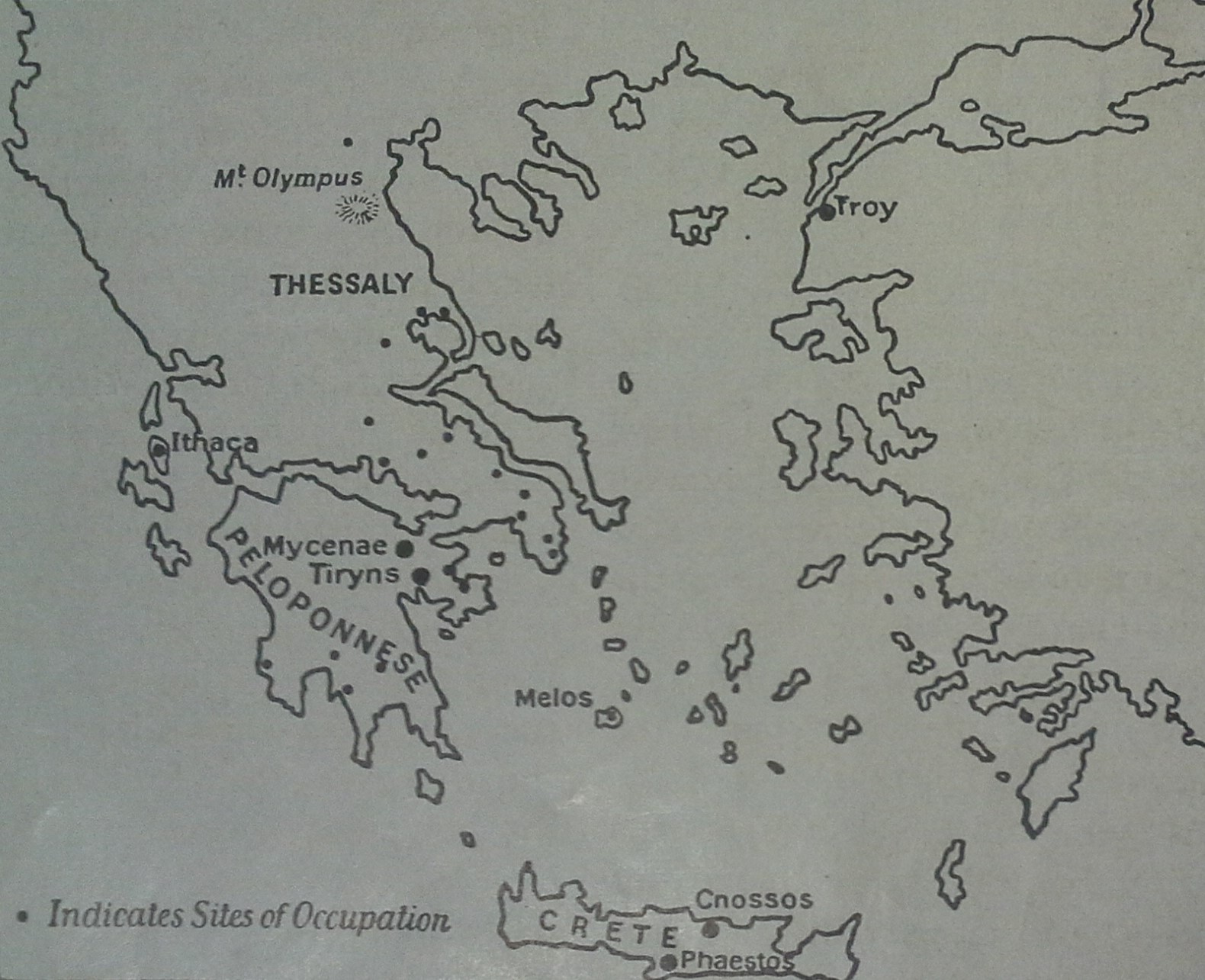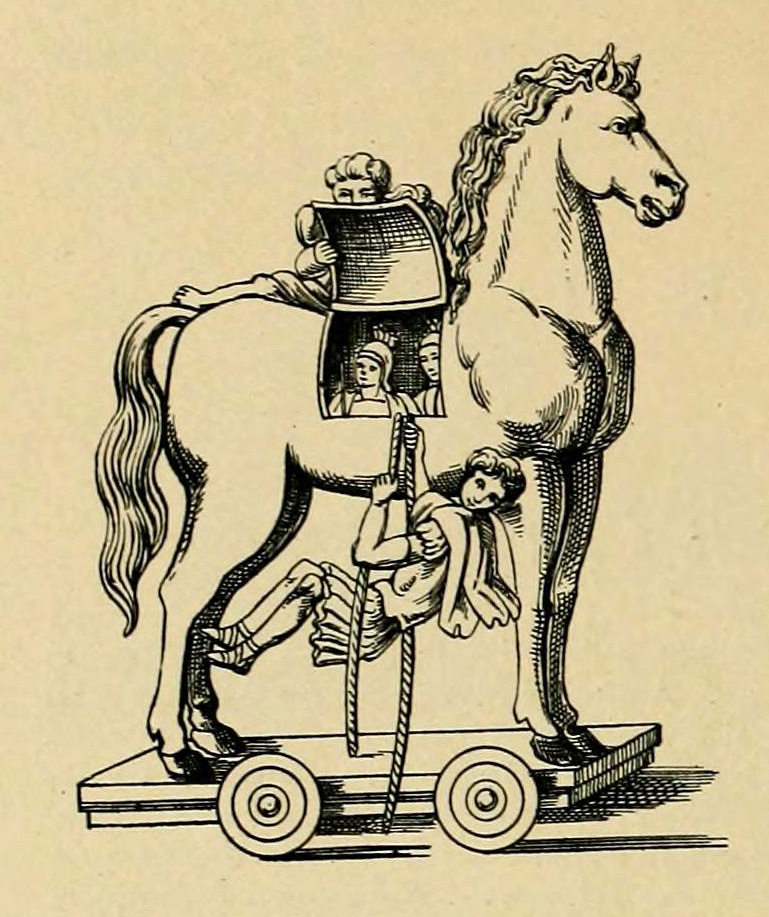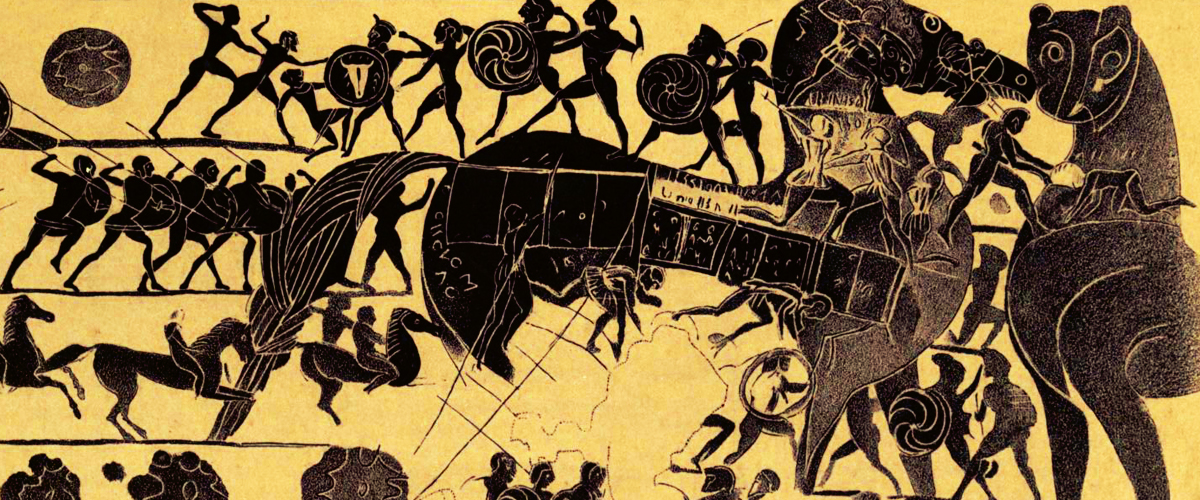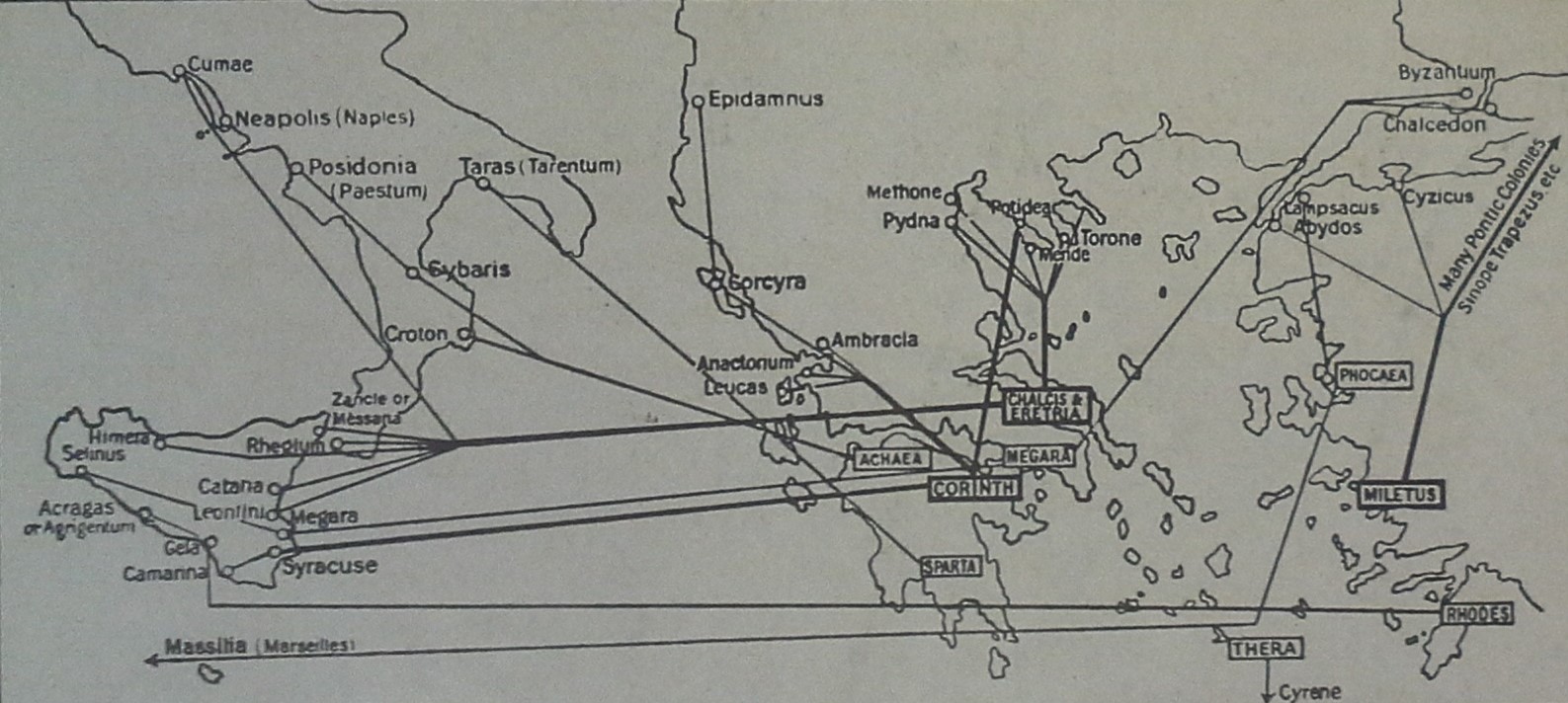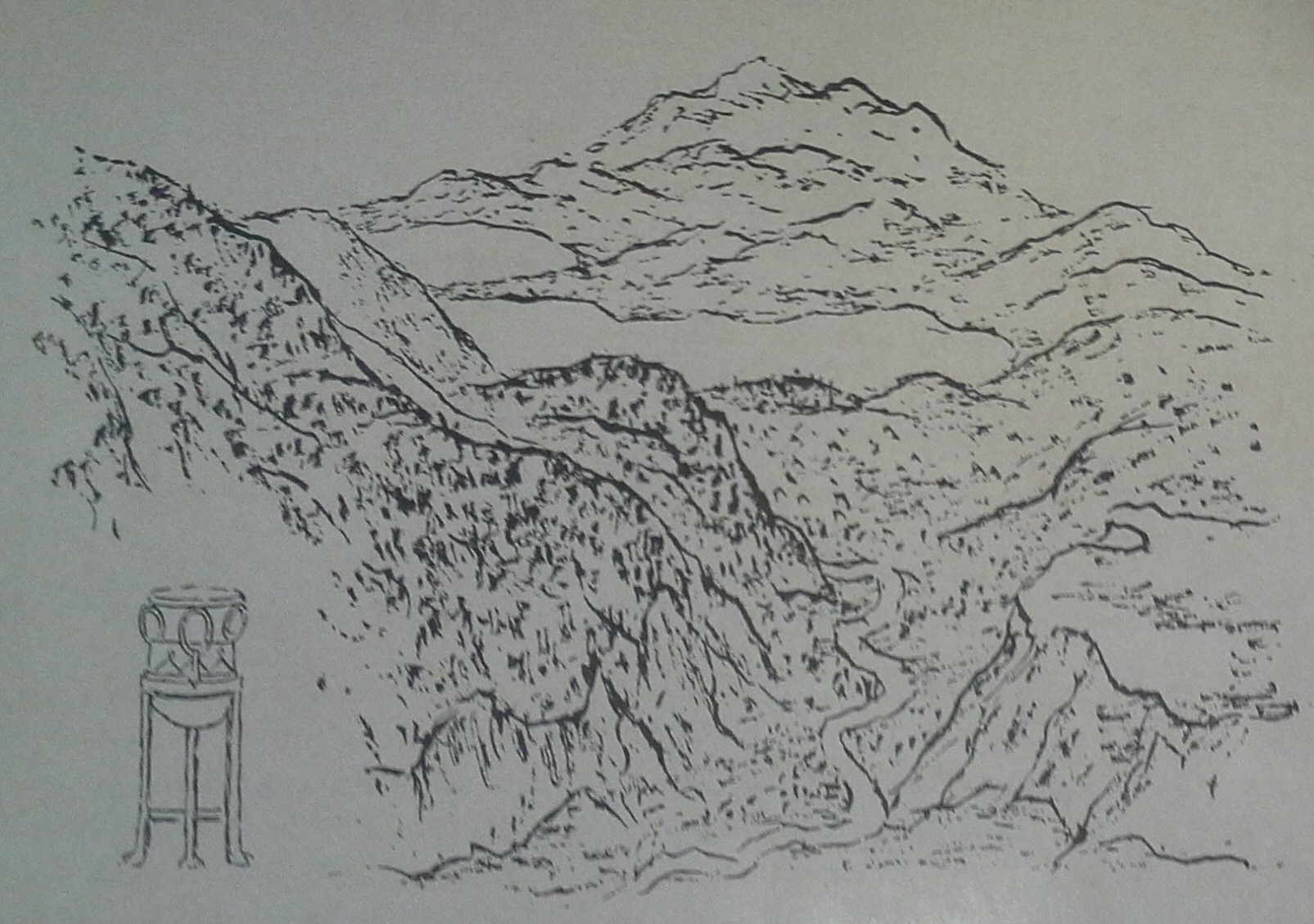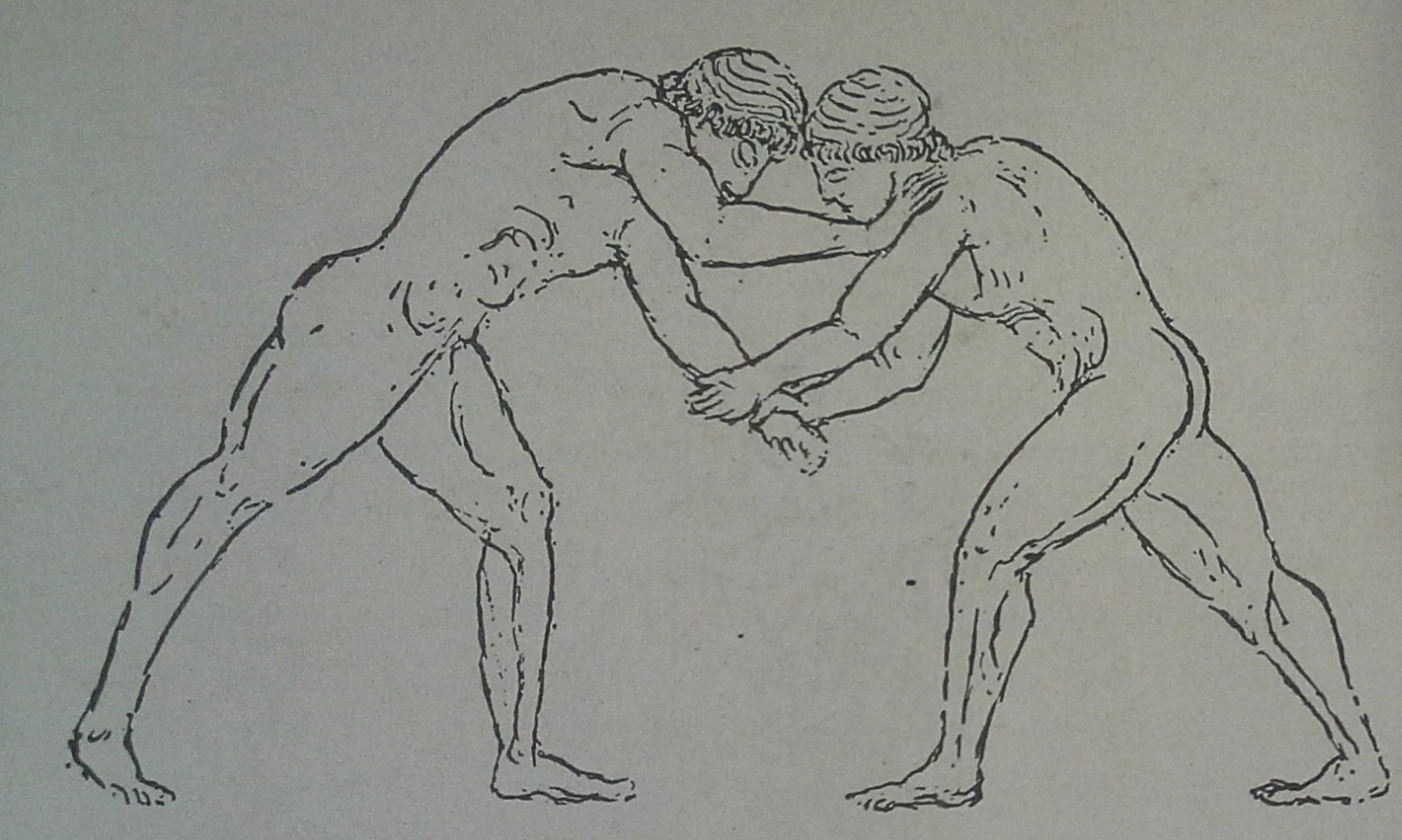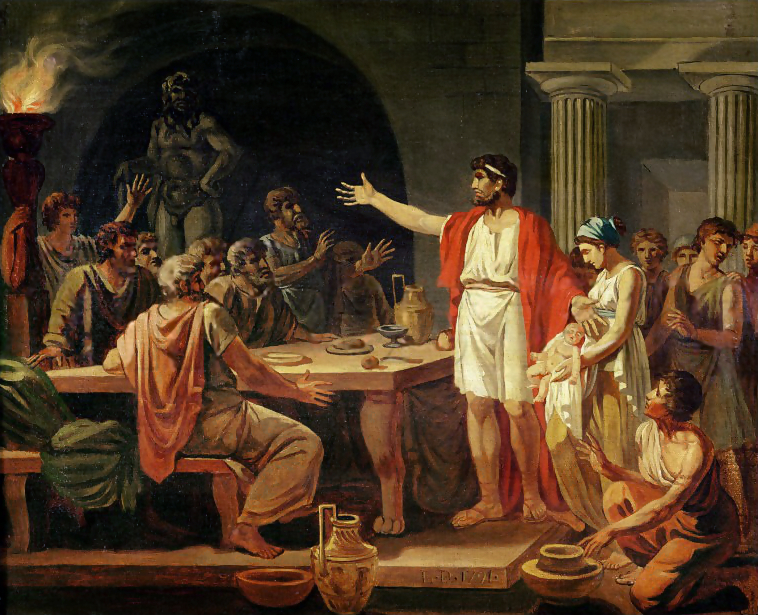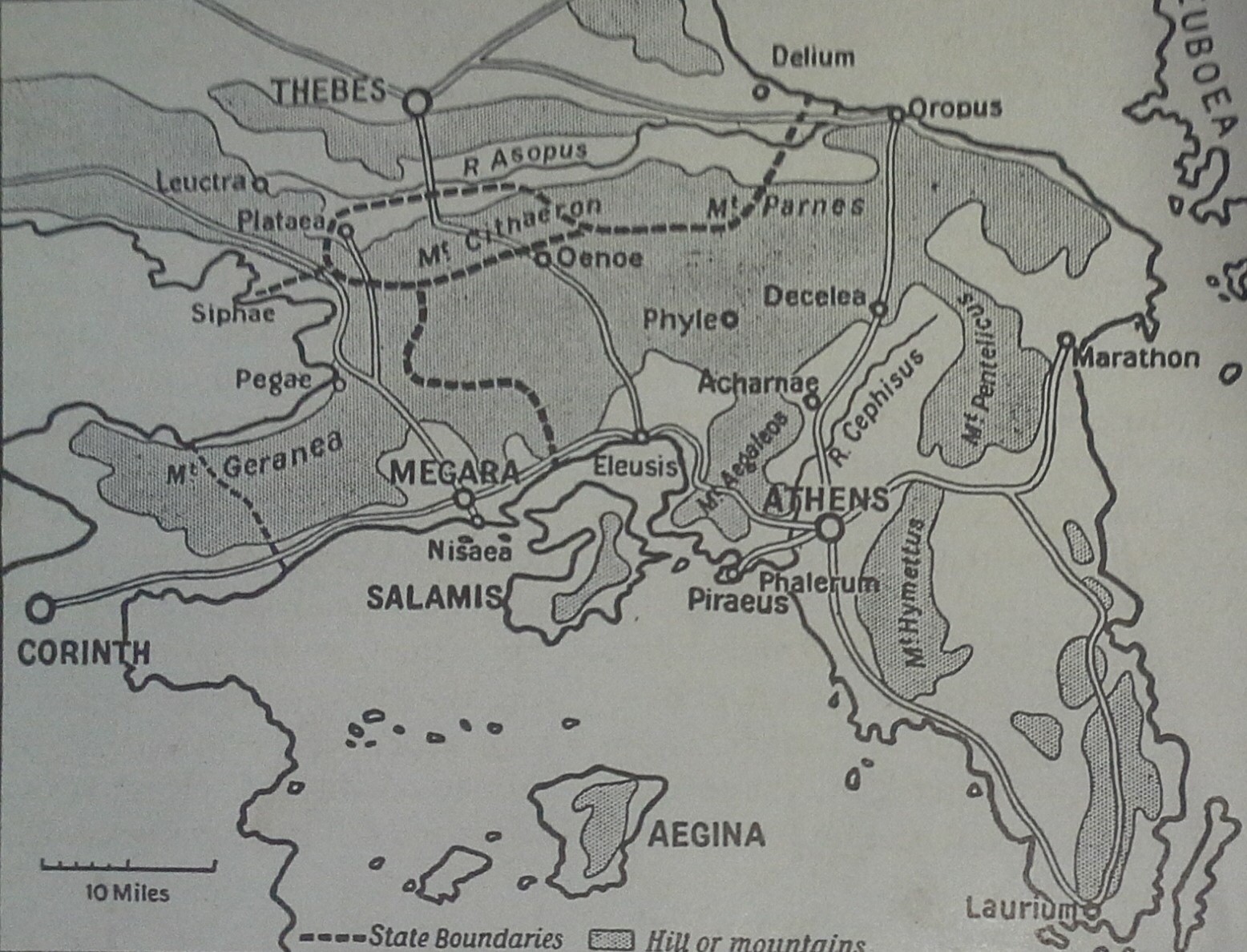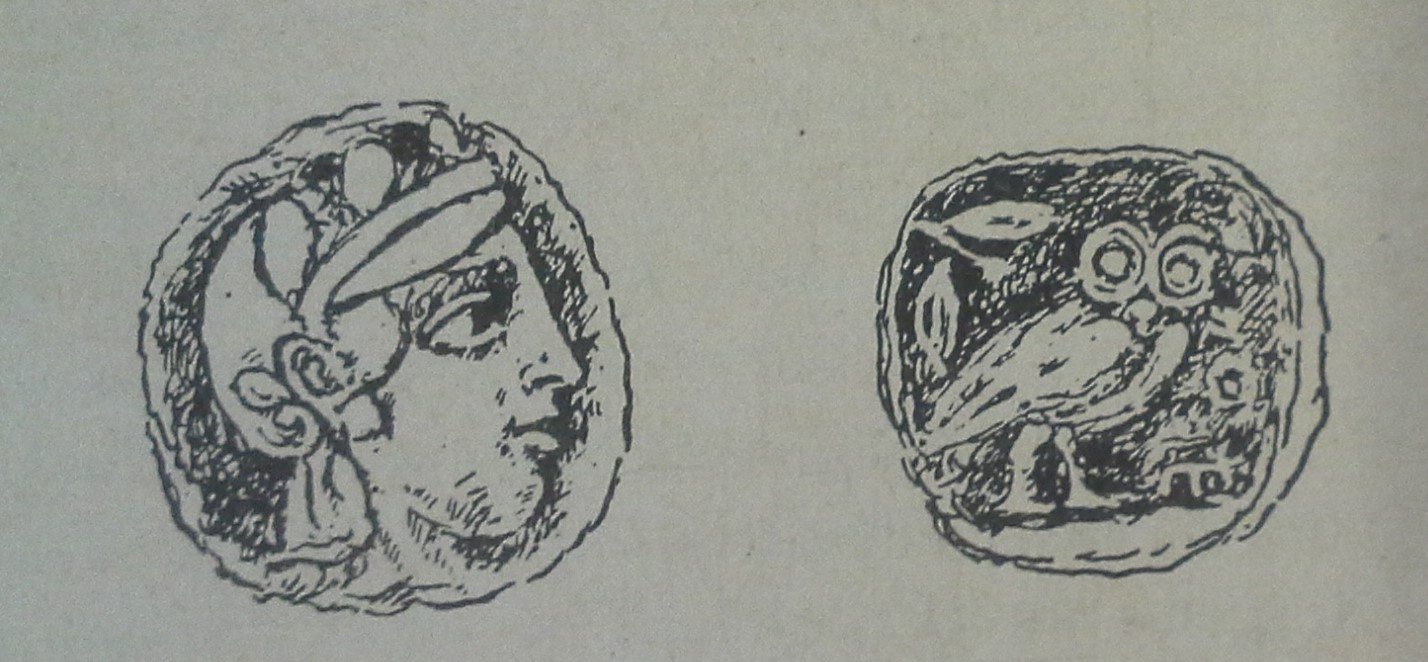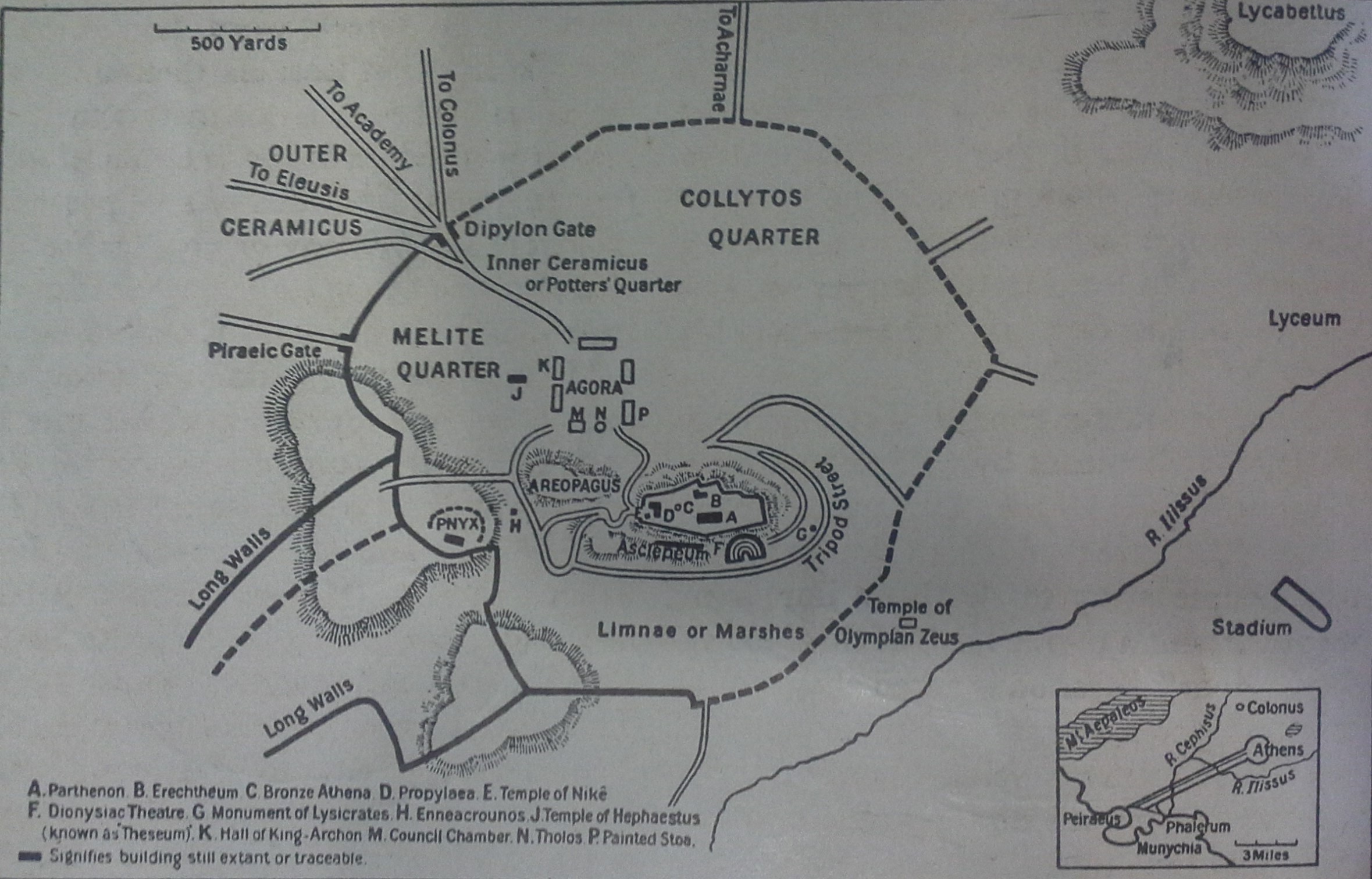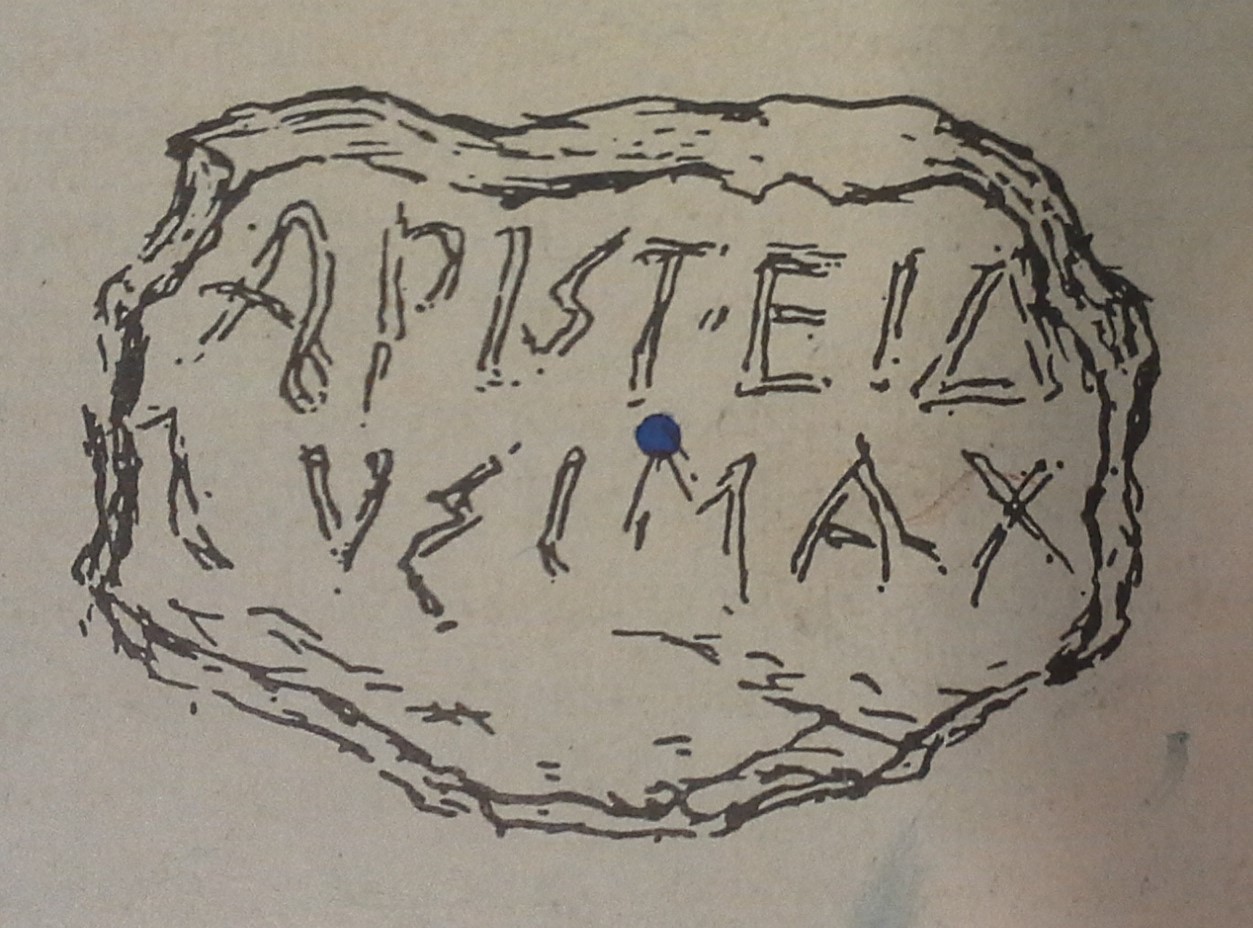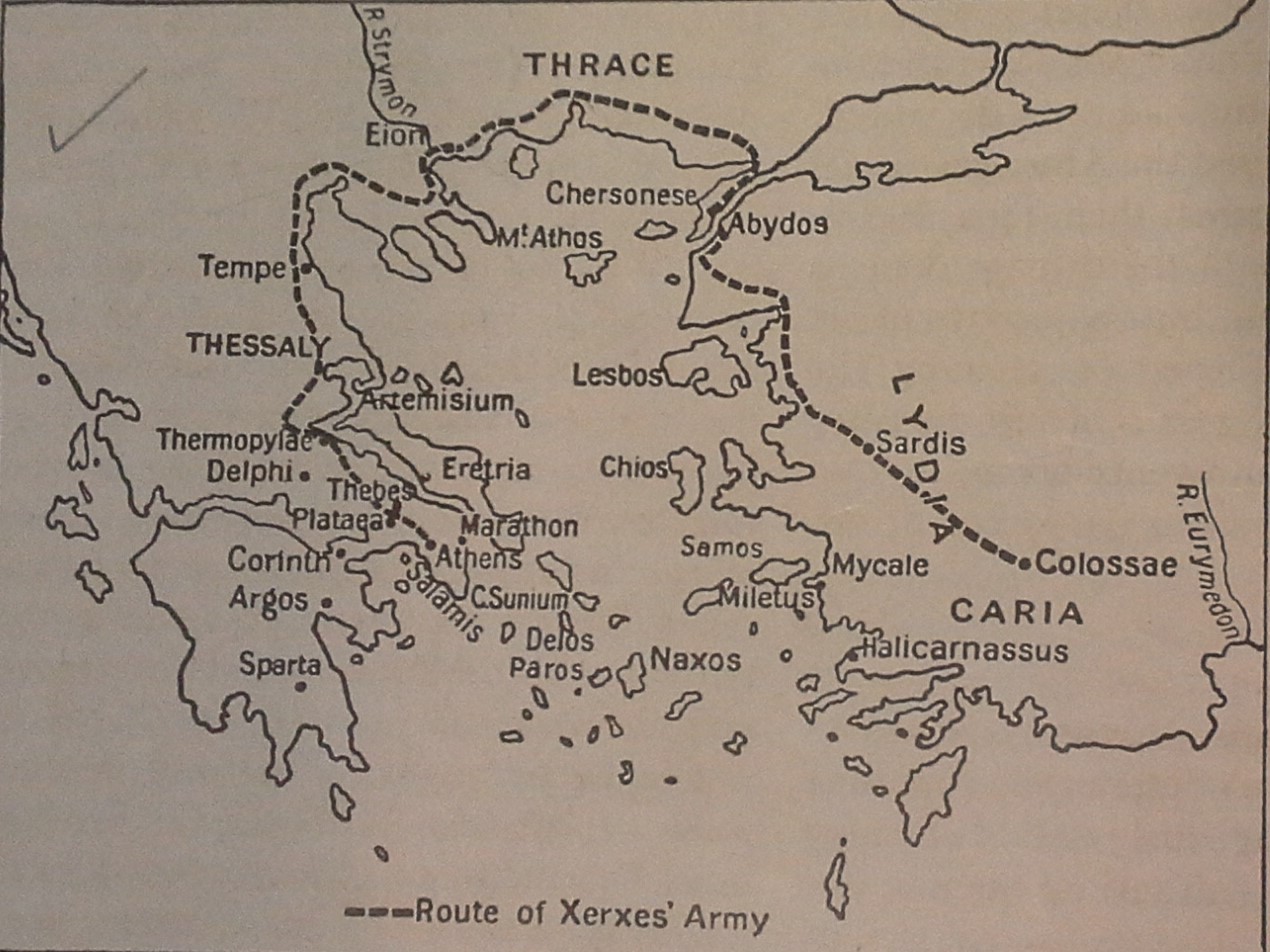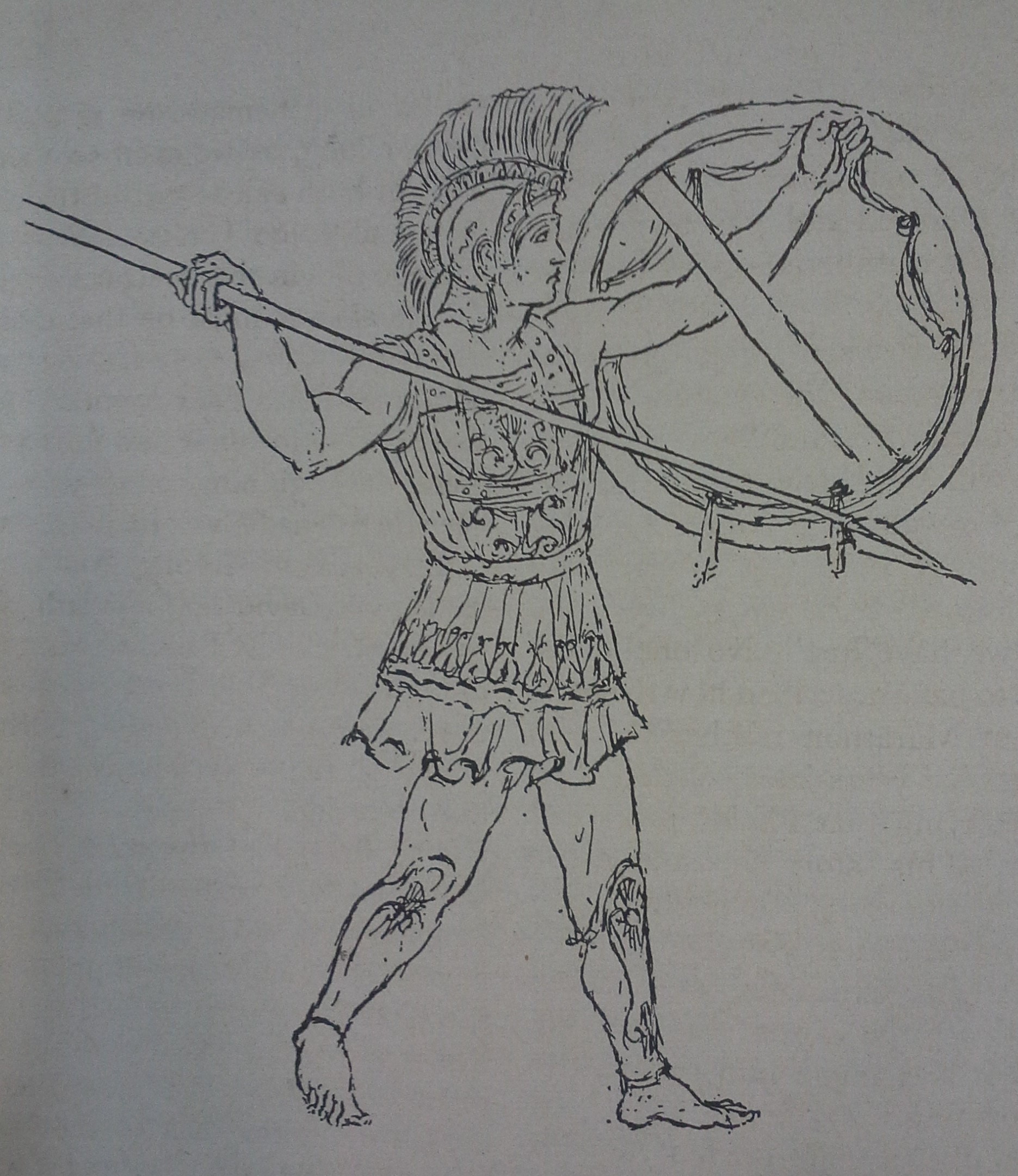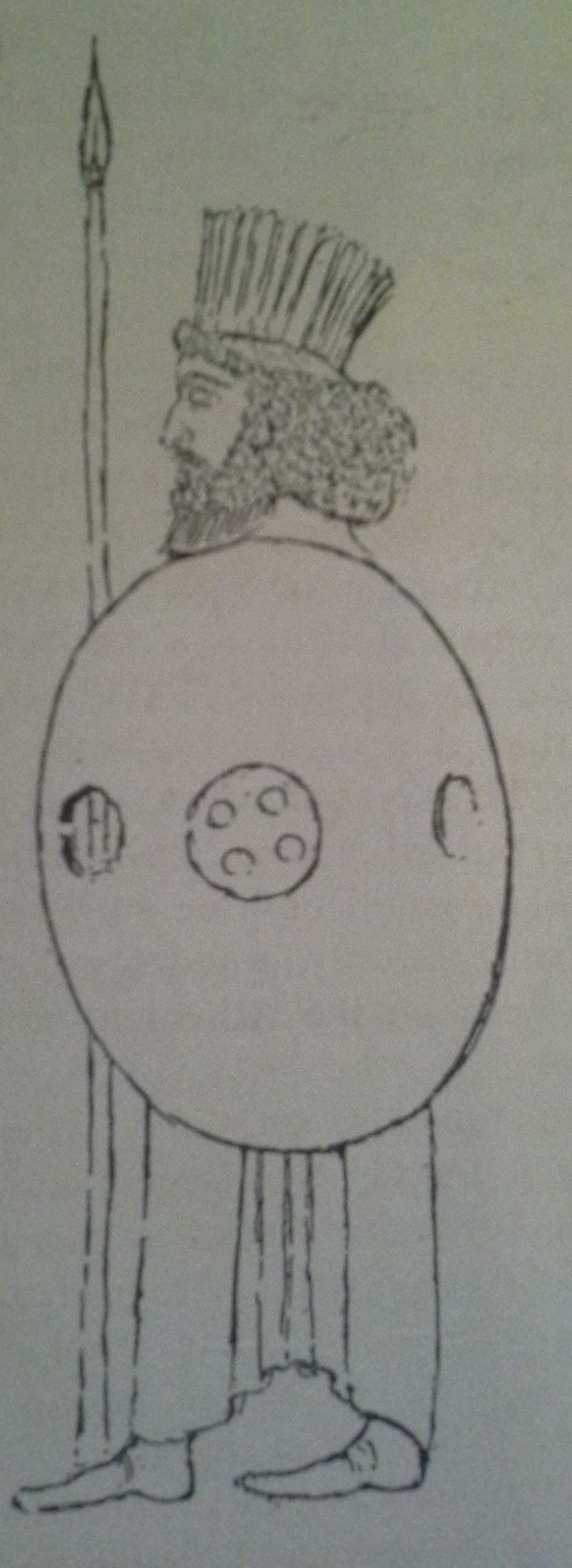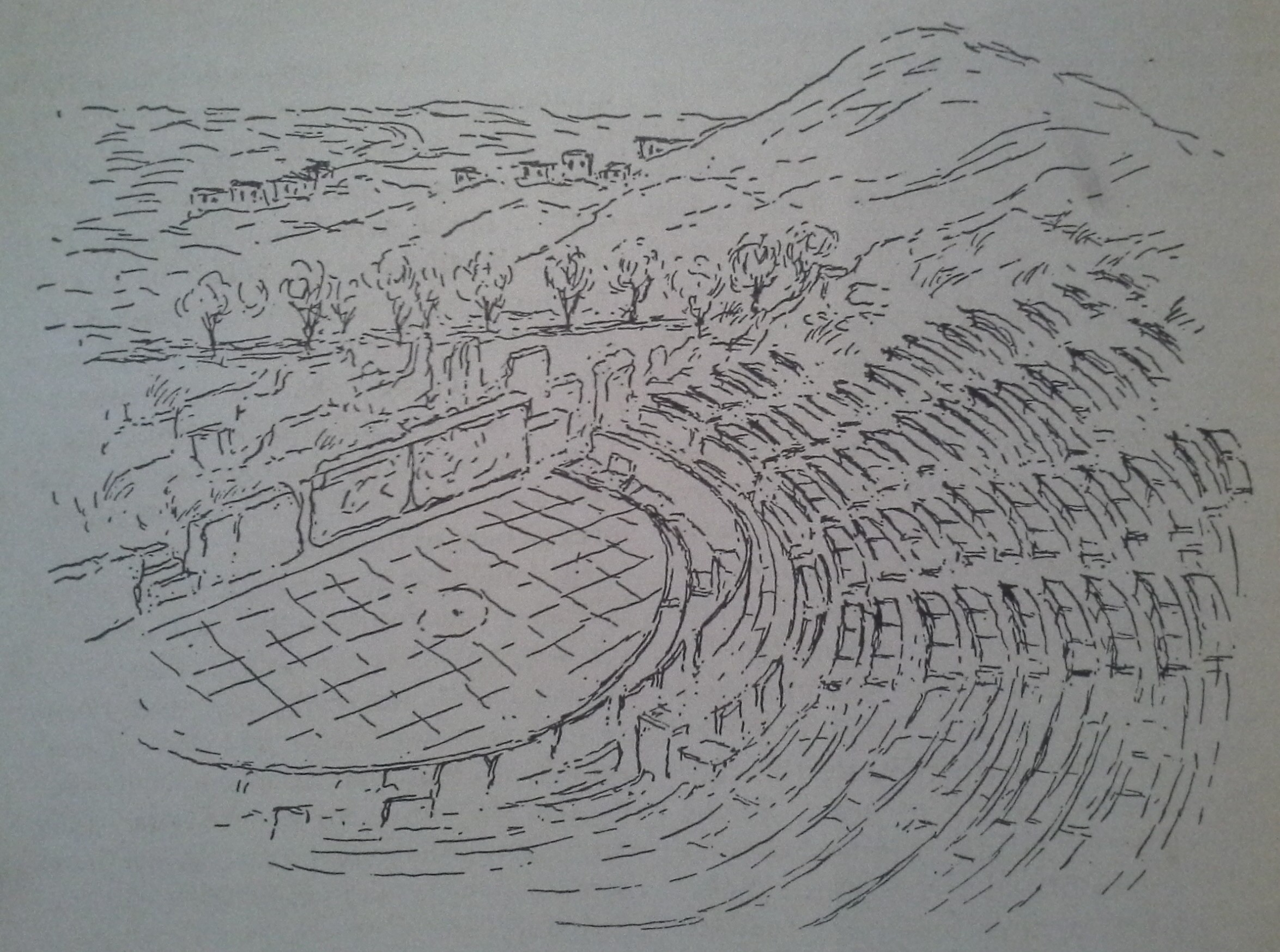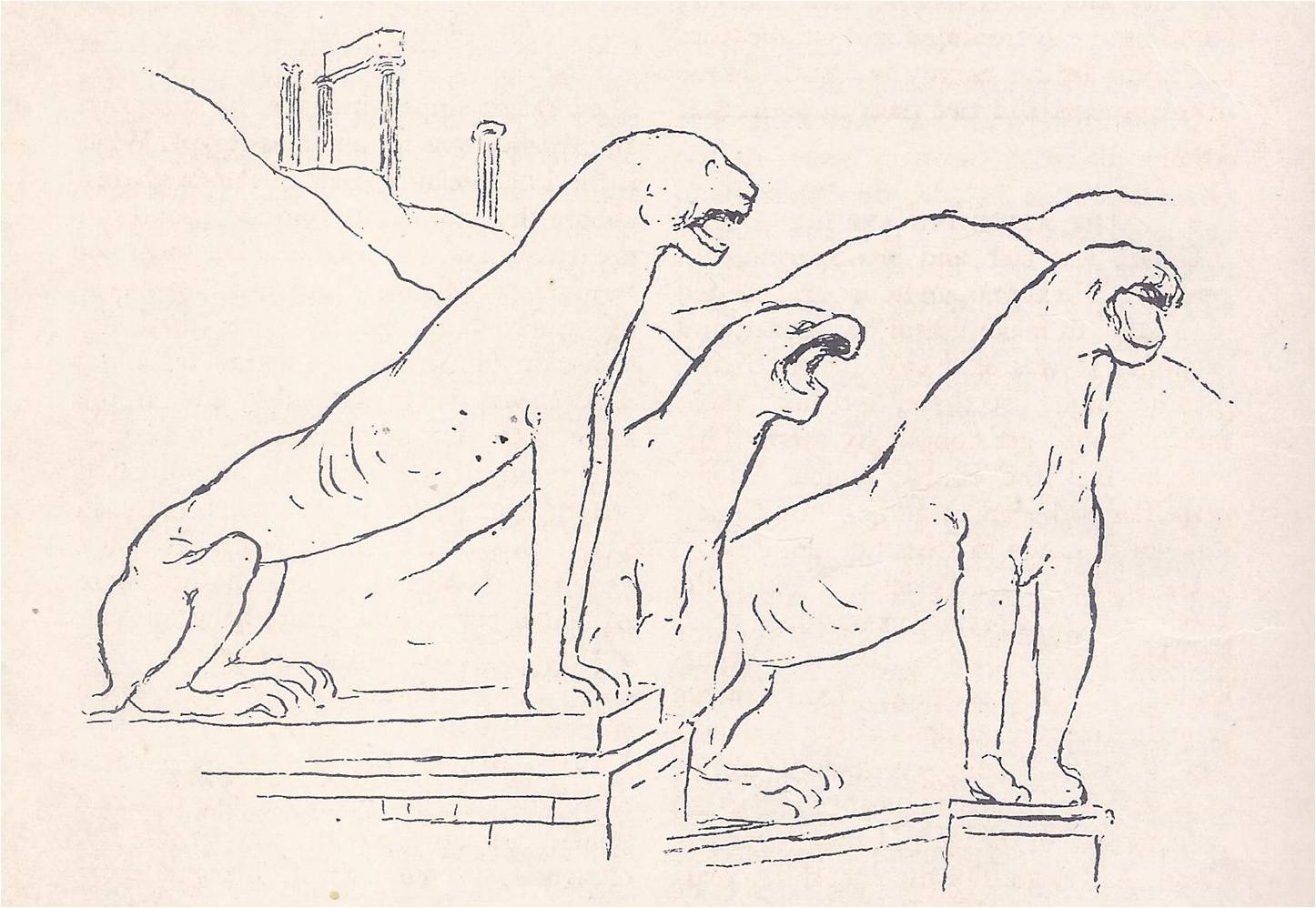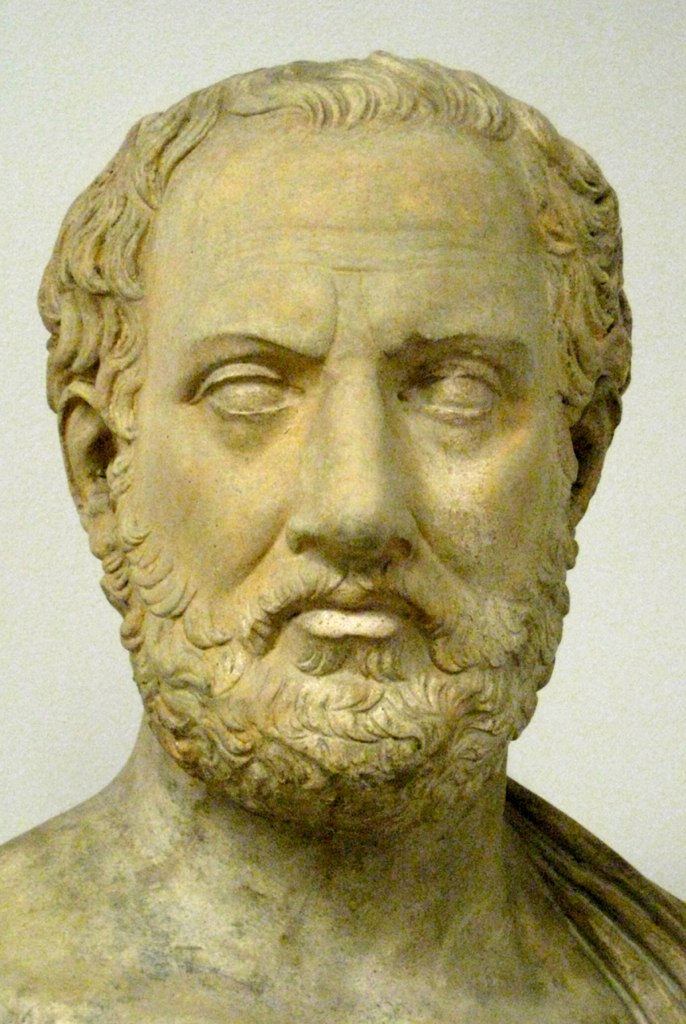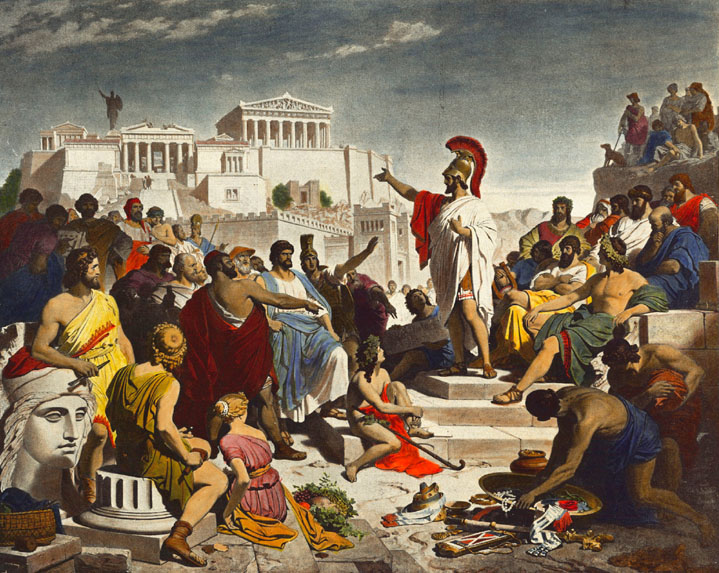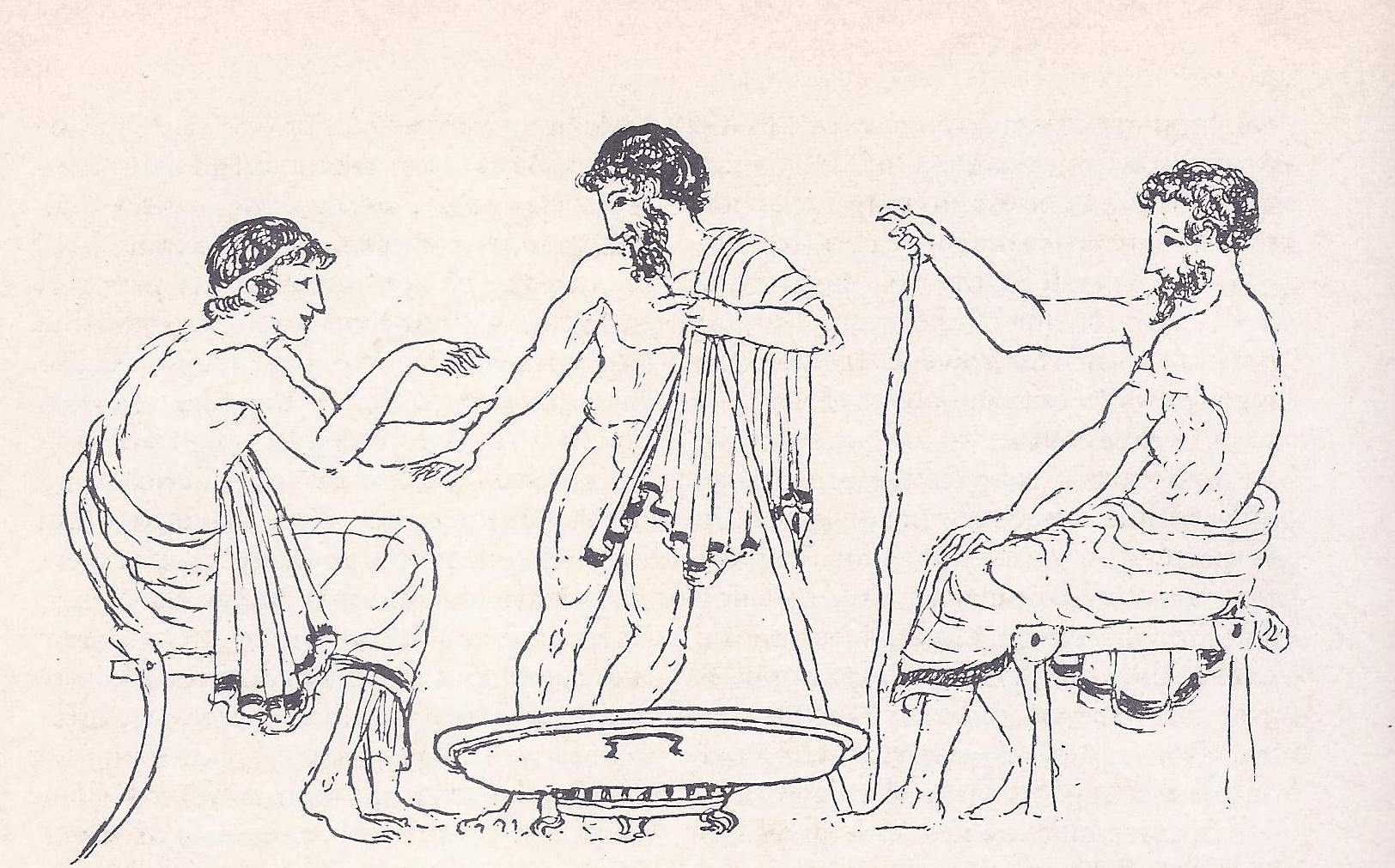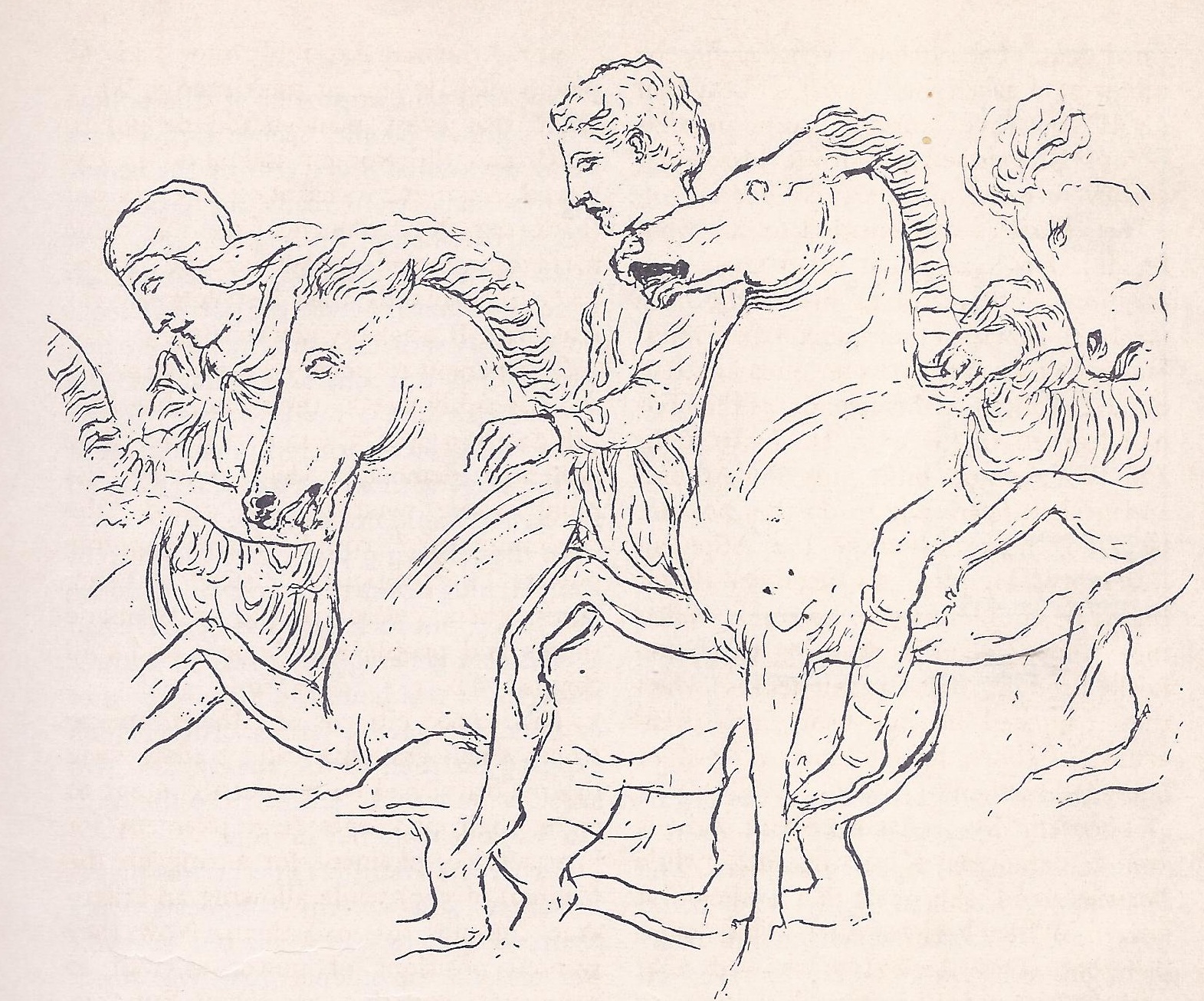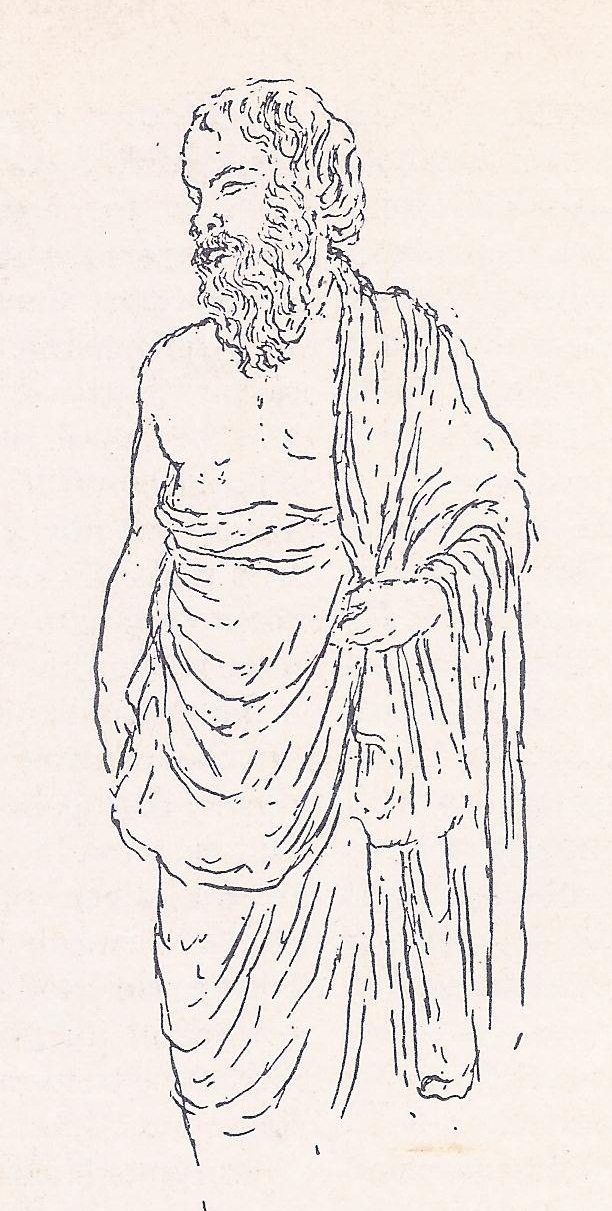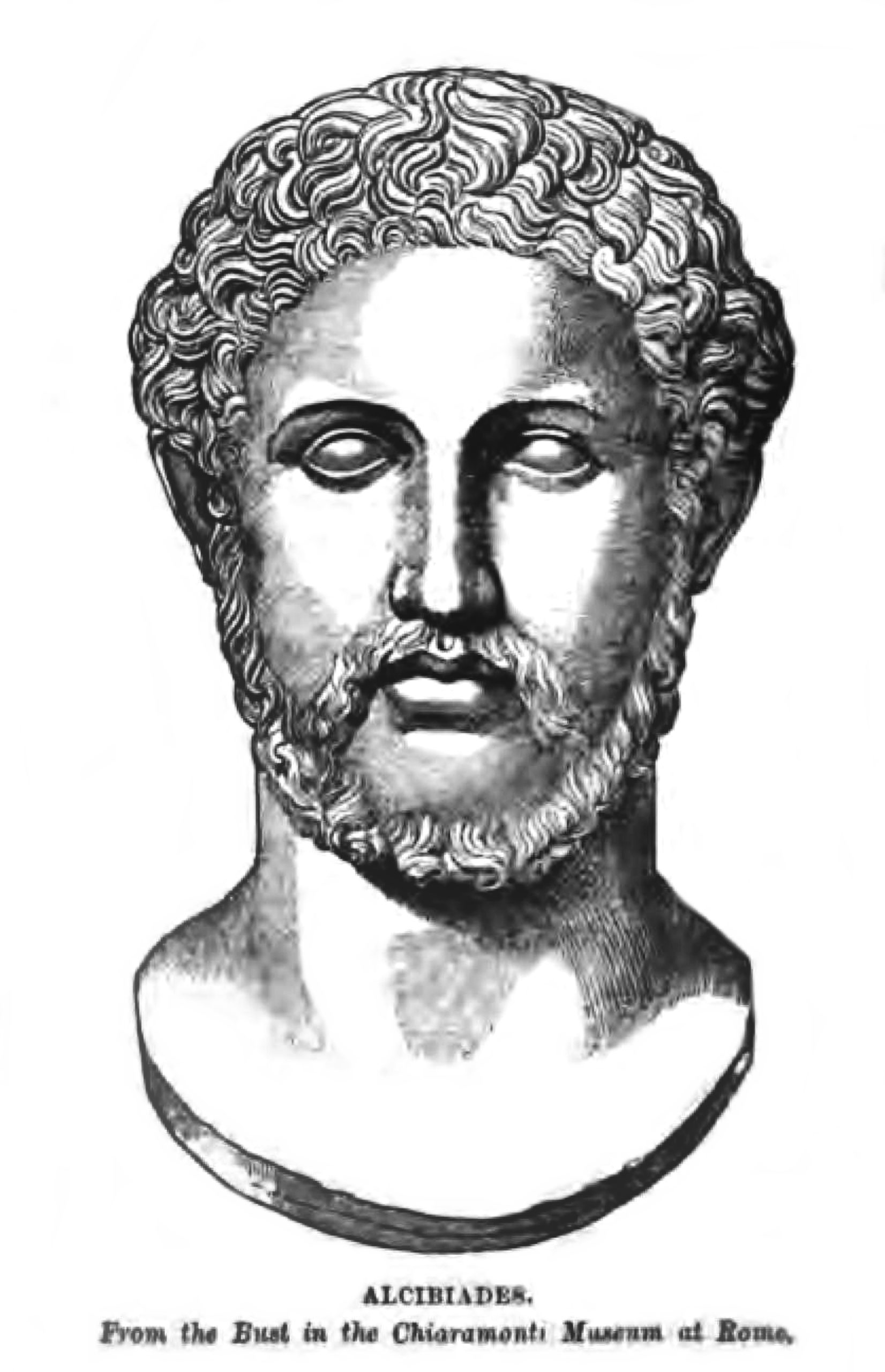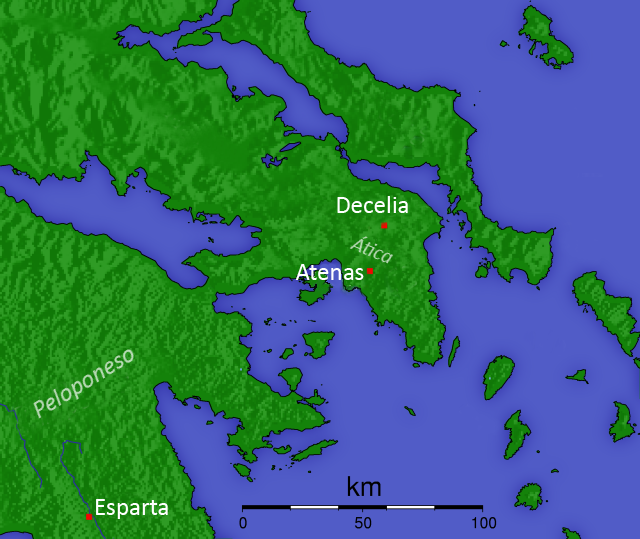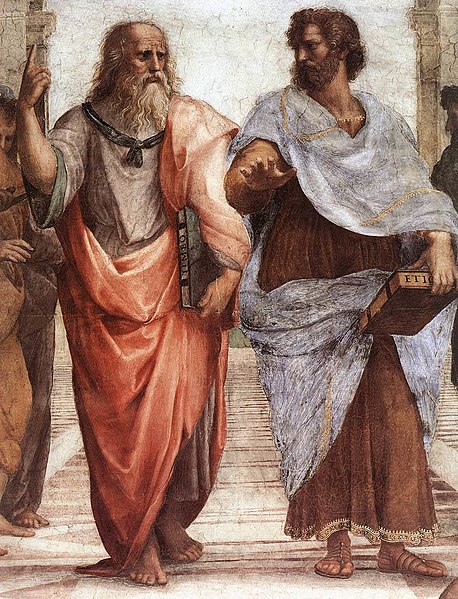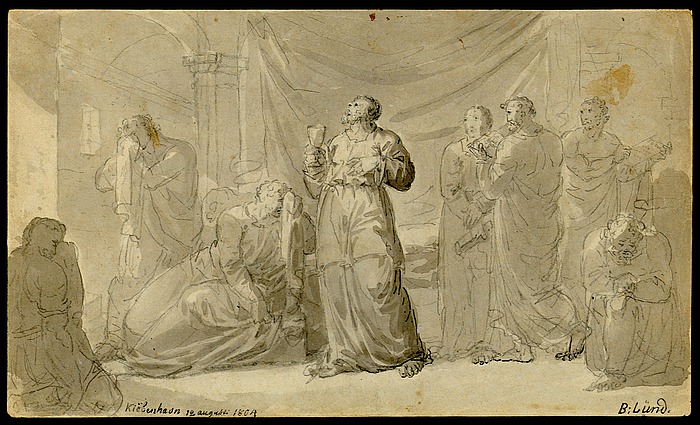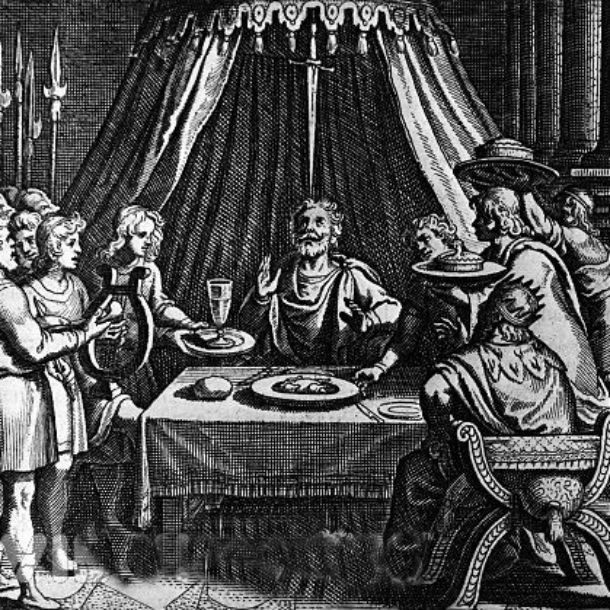Latest Posts
Kings, Tyrants and Democracy 1000 B. C. to 100 B. C.
During the Dark Ages, the large kingdoms of Homer’s Achaean heroes had disappeared. The Greek world was now dotted with
Gods and Heroes 800 B.C. – 550 B.C.
From island to island and town to town, across the wide new world of the Greeks, the minstrel wandered, with
Companions of the King 1500 B.C. – 1000 B.C.
Across the plains of Peloponnesus, flashed the swift chariots of knights and warrior-princes. They wore armour of gleaming bronze and
Early Civilizations to Modern Age
Sparta: City of Soldiers B. C. 700 – 500
In Sparta, the shops in the market place had little gold or jewelry to sell and no fine furniture at
Greece Fights for its Life 499 B. C.-479 B. C.
Across the Aegean, from the oriental court of King Darius of Persia, came messengers to all the city-states of mainland
The Golden Age of Athens 480 B. C. to 430 B. C.
When Themistocles and the people of Athens came home from Salamis, they found only the ashes of a city. Their
Distant Past and New Challenges
Milestones of History
Hammurabi – The First Law Code (1750 B. C.)
As the political state evolved, the problem of its administration evolved too. The territory ruled over by Hammurabi of Babylon
Hittites – A New Power Arises (1750 – 1450 B.C.)
Hittites, a new power, arises in the Near East and Babylon is eclipsed. The Babylonian kings who followed Hammurabi were
The Eruption of Santorin – (B.C. 1450)
By 2000 B.C. Crete, and its out post the island of Santorin, was the home of a remarkable, flourishing civilization. Known
